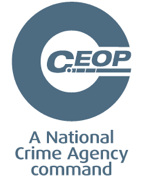SAFEGUARDING AND CHILD PROTECTION
If Parents and Carers have any safeguarding concerns please contact one of the school’s Designated Safeguarding Leads (DSL) during term time between 8:00 and 4:00, by calling the main school office (01843 597695). Outside of these times, if you are concerned a child is at risk, please contact Integrated Children's Services on 03000 41 11 11(office hours) or 03000 419191 (out of office hours). If a child is in danger, you should call 999.
Outside of term times, DSLs can be contacted by email - addresses listed below.
Designated Safeguarding Lead (DSL):Camilla Claxton, SENCo (senco@uptonjunior.com) / Darci Arthur, Head of School (headofschool@uptonjunior.com)
Deputy Designated Safeguarding Leads: Ross Kettle, Assistant Head / Gemma Scarr, Assistant Head / Angie Turner, Learning Mentor / Zoe Danson, Learning Mentor
Nominated Upton Governor responsible for Child Protection: Robin Curtis
Viking Academy Trust Lead Governor: Joanna Brand
Viking Academy Trust DSL: Kate Law (Director of Education) - DOE@vikingacademytrust.com
What is Safeguarding?
Safeguarding is the action that is taken to promote the welfare of children and protect them from harm.
Safeguarding means:
-
Protecting children from maltreatment
-
Preventing impairment of children’s health or development
-
Ensuring that children grow up in circumstances consistent with the provision of safe and effective care
-
Taking action to ensure that all children have the best outcomes
Safeguarding children and child protection guidance and legislation applies to all children up to the age of 18.
Safeguarding is everyone's responsibility
Everyone who works with children has a responsibility for keeping them safe. No single practitioner can have a full picture of a child’s needs and circumstances and, if children and families are to receive the right help at the right time, everyone who comes into contact with them has a role to play in identifying concerns, sharing information and taking prompt action.
Mandatory Reporting of FGM - Procedural information
From 31 October 2015 it is mandatory for teachers, health and social workers to report to the police if they find, or are told, someone under 18 has undergone FGM. Please click here to obtain more information on the correct procedure to follow.
Keeping Children Safe in Education - September 2024
Please click here to access the statutory guidance from the Department for Education. The guidance above affirms (page 6) that 'all staff members should be aware of systems within their school or college which support safeguarding and these should be explained to them as part of staff induction. This should include:
-
The child protection policy
-
The Whistle-blowing policy
-
The Behaviour policy
-
Anti-Bullying policy
-
Acceptable Use policy
-
Actions for children missing in education
-
The staff behaviour policy (sometimes called a Code of Conduct); and
-
The role of the designated safeguarding lead


